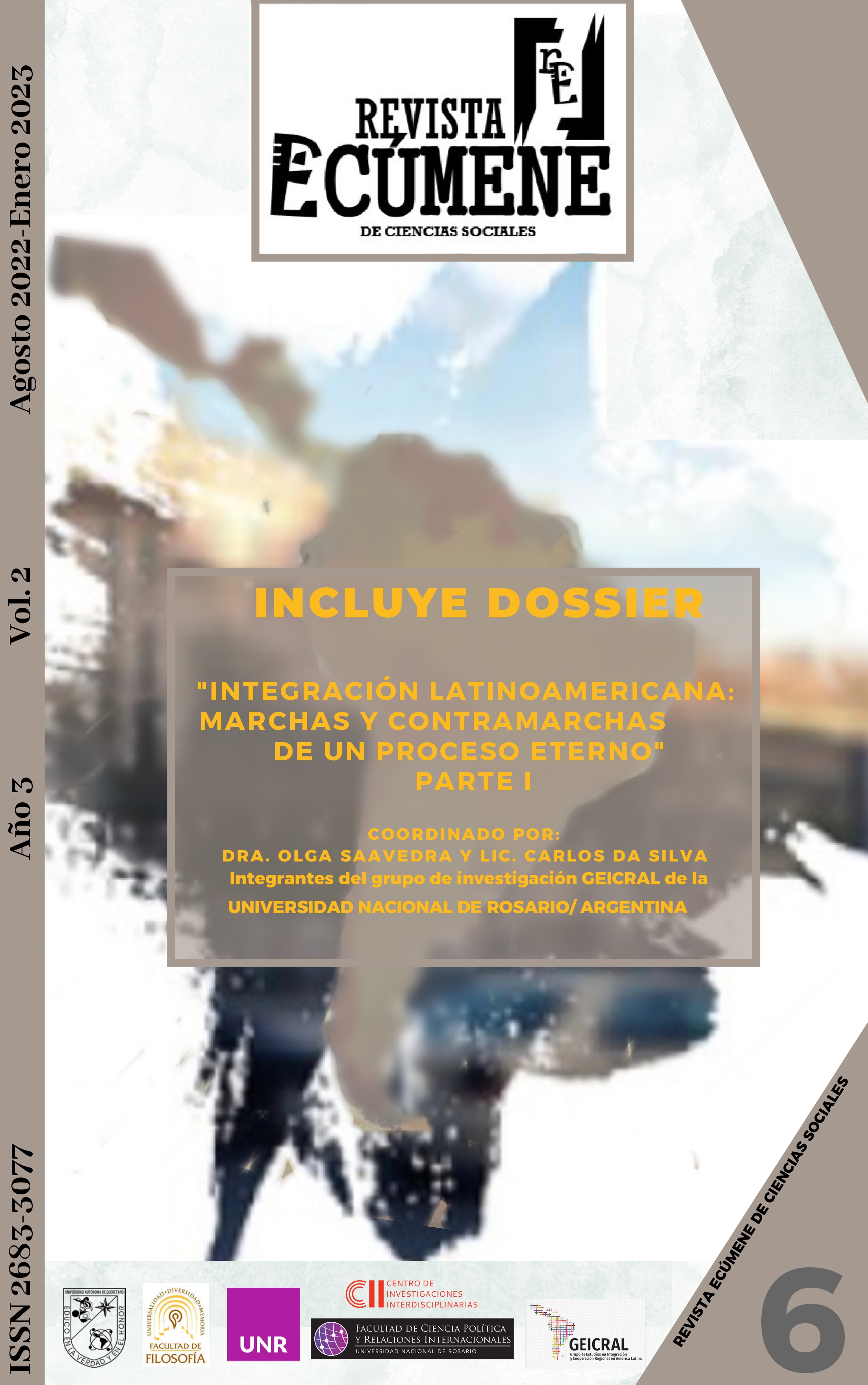Abstract
The purpose of this paper is to reflect on regional citizenship with special reference to Mercosur. Citizenship has been a concept closely linked to duties and rights within the borders of national states. In the 19th century, the notion of citizenship was expanded with the recognition of social rights; T. Marshall's 1950 work Citizens and Social Class is emblematic in this sense. This article intends to go beyond national citizenship and reflect on the current limitations that mediate between the theory and praxis of this condition through three hypotheses. They try to make visible the limits of citizenship not only within the national state, but also within the region, preventing the multi-state and multinational integration process of Mercosur from consolidating in the societies involved. The work consists so far in two parts. The applied methodology is qualitative/deductive and quantitative/inductive. Qualitative, since there is a review of the bibliography, especially for the Mercosur case. Quantitative because it is based on a field study that consists in 1,726 surveys in which students from the 5th year of International Relations of the National University of Rosario participated. This first part covers the study carried out in the five-year period 2015-2019. The second part of this work, brings together both 5th year students and 3rd year students of the aforementioned degree and began in the first semester of 2022. In both stages, the consultation instrument for different sectors of the population were poll or surveys. The first, most elementary. The second, more complex, product of the review and questions suggested by students and teachers/researchers.

This work is licensed under a Creative Commons Attribution 4.0 International License.
Copyright (c) 2023 Autor

